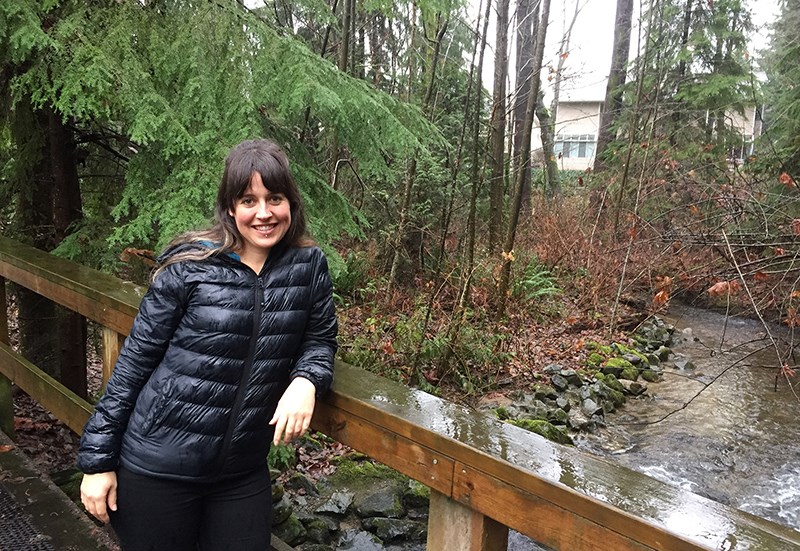Everybody says they care about the health of the Coquitlam River, but do they?
It’s an important source of food and shelter for fish and wildlife. It's watershed produces clean drinking water for the region, power to electrify homes and even gravel for industry.
Winding trails along the river shoreline are popular with walkers joggers and cyclists. People fish and swim in the river and some people without a place to live even camp beside it.
Yet for many, the river is just part of the backdrop or their daily lives.
Litter, unwanted plants, human and dog waste, and more are dumped along its shoreline. Cars pass by on the Mary Hill Bypass and Lougheed Highway, with drivers never taking a second look when they travel over it.
So, how can you get people care about their local environment?
That’s the question Sharee Dubowits is asking as she takes the helm of the Coquitlam River Watershed Roundtable, an alliance of community groups, government agencies and industry representatives working on projects to keep the river clean and healthy.
Recently, Dubowits was hired to coordinate the activities of the alliance, with the number one goal being to get people involved in protecting the river.
“If we can get volunteers out, they are more likely to care,” said Dubowits, a graduate of BCIT’s Renewable Resources (Fish, Wildlife and Recreation) Program who has worked with various organizations, including Fisheries and Oceans Canada, InStream Fisheries Research and the Seymour Salmonid Society.
Helping with the work is three years of sustainable funding, up to $100,000 a year, with funds from the Greater Vancouver Water District Board, the Kwikwetlem First Nation, and the cities of Coquitlam and Port Coquitlam.
Her job as roundtable coordinator is to support the core committee, a collective of 15 to 18 representatives of various stakeholder sectors, to implement goals, strategies and activities of the roundtable.
The alliance has identified more than a dozen areas that need work, including monitoring development, and ensuring it comes with protected green space and storm water management, removing invasive species, such as ivy that crowds out native plants, and educating people not to dump plants, old mattresses, dog waste bags and other litter.
Much progress has been made, she said, and more could be done as the group presses on with a number of issues, including working with BC Hydro and Metro Vancouver on sharing the river’s water for salmon as well as power and water.
Dubowits said the group is also looking at a number of possible solutions to clean up the river, such as installing outhouses so people don’t do their business in the woods, and encouraging the construction of rain gardens to filter polluted water running off roads before it hits the river.
Members of the public can expect to see Dubowits and her crew at public events, encouraging people to conserve water so more is available for salmon, and to stop dumping litter and plants in the bushes.
The group is also advocating for the province to take action on a drainage plan for Fulawka Creek, that poured silt into a fish habitat area during a heavy rainstorm.
With Metro Vancouver continuing to offer tours of the watershed during summer months, and people helping out with invasive species removal, Dubowits said she hopes more people learn about the river, its importance and its value to the community.
Seeing is believing, she said, for people to care enough to take action.
Among the things people can do is get involved in social media campaigns, sign up to receive the quarterly email newsletter, volunteer for shoreline cleans, invasive species “pulls” and native species plantings. People can also keep an eye on the group’s Facebook page @CoqRiverWS for upcoming polls, contests and opportunities to share.
“If we can get people to see,” Dubowits said, “they are merely likely to help and educate their friends.”



